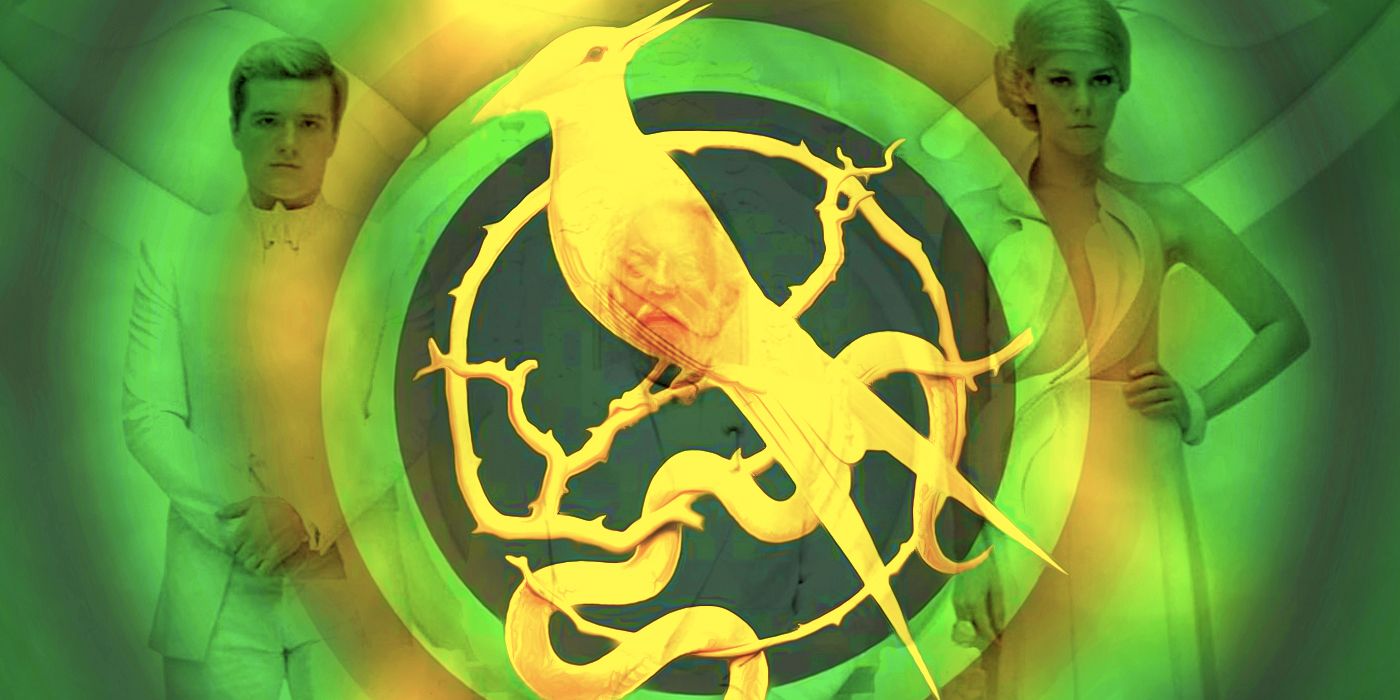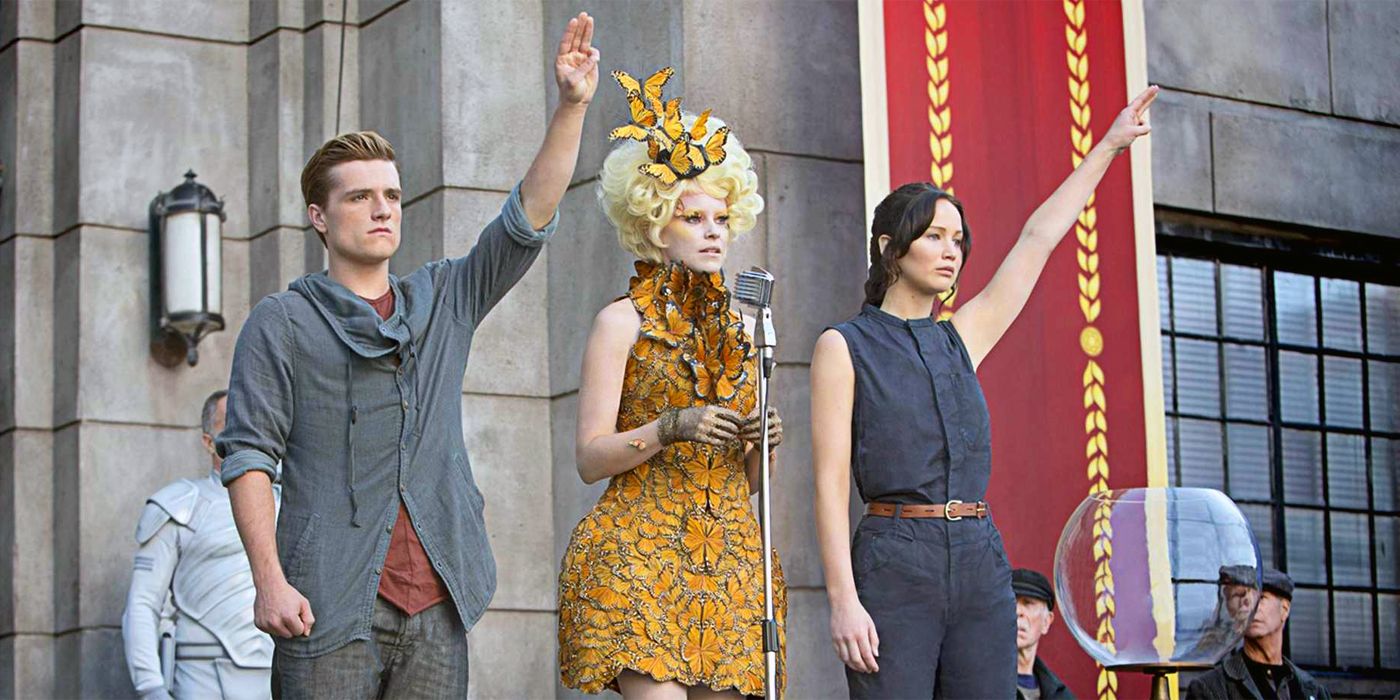WARNING: The following contains spoilers for The Ballad of Songbirds and Snakes by Suzanne Collins, available now.
The Hunger Games introduced fans to the world of Panem, a country where 12 districts must send their children to a deathmatch every year for the Capitol's benefit. Even after the original trilogy ended, fans had many questions about The Hunger Games, its characters and its history.
Now, after reading The Ballad of Songbirds and Snakes, they have some answers. The prequel centers on a young Coriolanus Snow, who will grow up to be an evil dictator in The Hunger Games trilogy. In revealing his origin story, readers also find out a lot about the origin of the games.
How did Coriolanus Snow become so evil?
People are not born evil, and Coriolanus is no exception, but Ballad details his slow descent into villainy. Coriolanus was born into a prominent, wealthy family, but he is orphaned at a young age, and his family loses their fortune in the war. He's also deeply scarred by the things he saw as a child during the war. At 18 years old, Coriolanus does everything he can to keep up the appearance of wealth while he and his family barely scrape by.
Despite all of this, Coriolanus' experiences do not make him sympathetic to the plight of others. Instead, he believes that he is entitled to everything his family name would've gotten him before the war. While he isn't as overtly prejudiced as his grandmother, he shares her deep-seated belief that Capitol citizens are inherently better than District citizens, who he sees as less than human. In the end, he betrays both Sejanus and Lucy Gray, who aren't from the Capitol, proving that he'll do anything to save his own skin.
Who was District 12's first victor?
In The Hunger Games, Katniss briefly mentions that there's another District 12 victor, but fans don't learn anything about this mystery person. Ballad gives them the story of Lucy Gray Baird, District 12's first victor.
A natural performer, she charms the Capitol with her beautiful voice and goes on to win the games, but since she and Coriolanus win by cheating, Head Gamemaker Dr. Volumnia Gaul destroys every record of the Tenth Hunger Games. Lucy Gray also disappears in the woods outside of 12 and is never seen again. The Capitol tries to erase every memory of Lucy Gray, but she lives on in her songs.
Who wrote "The Hanging Tree?"
"The Hanging Tree" was written by none other than Lucy Gray Baird. In Ballad, she and Coriolanus witness the execution of a rebel named Arlo Chance. His death becomes the inspiration for the song, and after she performs it, the local authorities ask Lucy Gray not to sing it anymore.
In spite of this, the song lives on and gets passed down to Katniss. After she sings it, "The Hanging Tree" becomes the anthem of the new rebellion. The song was already haunting, but this backstory makes it even more significant, especially considering Snow's relationship with its composer.
Who Came Up with the Hunger Games?
One of the many tragic backstories in Ballad, Dean Casca Highbottom is the remorseful creator of the Hunger Games. He came up with the idea for a school project, but he was drunk and never meant for it to be put into practice.
Unfortunately, his friend and partner for the project, Crassus Snow, submitted the idea to their teacher, Dr. Gaul, and, to Highbottom's horror, the Hunger Games were born. After his creation comes to life, Highbottom becomes a morphling addict.
The Monstrous Evolution of The Hunger Games, Revealed
When Katniss competes in the Hunger Games, they are massively popular in the Capitol, with makeovers, interviews and training; however, in Ballad, readers see the games in their rawest form, without any glitz and glamour. The tributes are treated like prisoners, kept at the monkey house of the zoo, starved and then thrown into a dilapidated arena so they can kill each other. Most Capitol citizens don't want to watch the event because it reminds them of the war, and most people in the Districts don't even have a working television. In order to keep the games going, Coriolanus and his classmates are tasked with making them more popular.
Together, the class introduces sponsors and gambling to give Capitol citizens a way to participate in the games. They are also the first mentors, helping their respective tributes figure out strategies to win and getting them sponsors. During the actual games, Dr. Gaul adds mutts to the mix, and Lucretius "Lucky" Flickerman provides commentary. On his own, Coriolanus gets the Gamemakers to feed the tributes, so they'll actually make it to the arena. Later, Coriolanus also has the idea of giving the Districts more incentives to participate in the games and making viewing mandatory. Thanks to these new developments, the Hunger Games continue for another 65 years.






